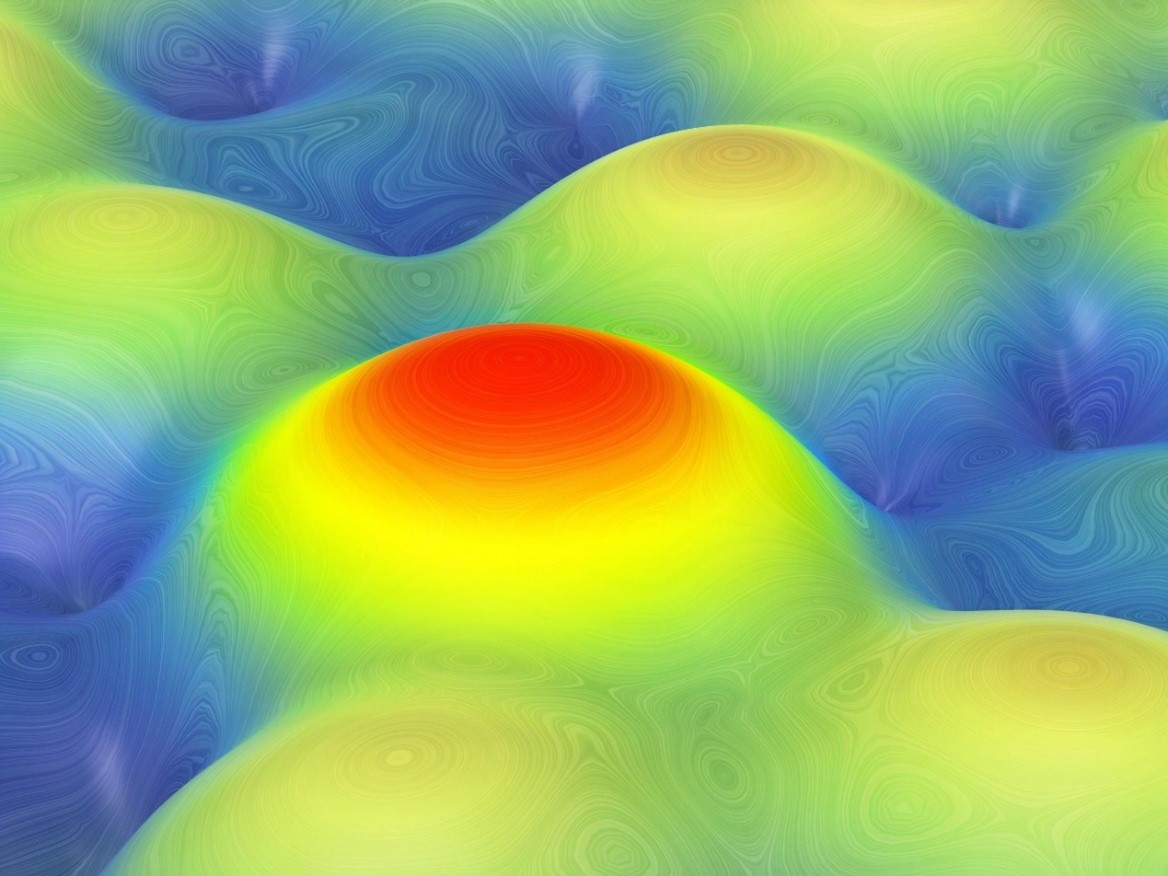
Single-atom catalysts (SACs), with their excellent metal atom utilization and unique physicochemical properties, hold promise for broad applications, especially in heterogeneous catalysis and energy conversions. In essence, the activity and stability of SACs are governed by the pair of metal-adsorbate and metal-support interactions. However, the rationale of these interactions with their catalytic performance of SACs in nature and a unified theoretical model to describe both activity and stability remain elusive.
In a study published in Nature on April 2, a research team led by Prof. LU Junling from the University of Science and Technology of China (USTC) of the Chinese Academy of Sciences (CAS), along with Prof. WU Xiaojun from USTC and YANG Bing from the Dalian Institute of Chemical Physics of CAS, innovatively introduced the Frontier Molecular Orbital (FMO) theory into the design of heterogeneous SACs. They achieved the first successful application of the FMO theory in heterogeneous catalysis and obtained a highly active and stable SAC for hydrogenation reactions.
The researchers constructed 34 palladium (Pd) SACs on 14 semiconductor supports. By adjusting support size and composition, they were able to precisely tune the lowest unoccupied molecular orbital (LUMO) and highest occupied molecular orbital (HOMO) energy levels of the supports. The energy positions of LUMO and HOMO with particle size were experimentally determined by ultraviolet‒visible (UV‒Vis) spectroscopy and Mott–Schottky plots.
Aberration-corrected high-angle annular dark-field scanning transmission electron microscopy (HAADF-STEM) confirmed atomic dispersion of Pd on metal oxide particles (MOx). In situ diffuse reflectance infrared Fourier transform spectroscopy (DRIFTS) and X-ray photoelectron spectroscopy (XPS) further demonstrated enhanced Pd-MOx electronic interactions as the size of oxide particle decreases.
In the reaction of semi-hydrogenation of acetylene, the researchers found that Pd1 SACs supported on nanosize ZnO and CoOx exhibited a 20-fold activity enhancement over bulk-oxide-supported counterparts while maintaining high selectivity. Notably, the Pd1 SAC on 1.9 nm ZnO achieved a remarkable turnover frequency (TOF) of 25.6 min-1 at 80 °C, surpassing all the Pd1 SACs reported in the literature. This catalyst also demonstrated exceptional stability over 100 hours without any visible coke formation or metal aggregation.
Furthermore, the correlation of the intrinsic activities with the properties of Pd1 in all these Pd1 SACs disclosed that the activities of Pd1/MOx SACs didn’t show a clear correlation with the Pd charge states. In contrast, their activities showed a linear scaling relationship with the LUMO positions of the n- and p-type oxide particle supports in Pd1/MOx.
Through theoretical calculations, researchers elucidated the underlying mechanism of the pair of metal-support and metal-adsorbate frontier-orbital interactions. They showed that reducing ZnO size elevated its LUMO level and widened the bandgap. The elevated LUMO of support reduced its energy gap with the HOMO of Pd1 atoms, which promotes Pd1–support orbital hybridizations for high stability. Meanwhile, the variation of Pd1–support orbital hybridizations further amended the LUMO of anchored Pd1 atoms to enhance Pd1–adsorbate interactions for high activity. These findings are consistent with the FMO theory, validating the application of FMO theory in heterogeneous catalysis.
This work presents the first direct experimental substantiation of the FMO theory in full view and provides a general descriptor for the design of a highly active and stable SAC for the first time. The findings provide a new approach for high-throughput screening of proper metal-support pairs to achieve high activity and stability, particularly powered by artificial intelligence.

Schematic illustration of a single-atom catalysis (Image by Prof. LU et al.)

86-10-68597521 (day)
86-10-68597289 (night)

52 Sanlihe Rd., Xicheng District,
Beijing, China (100864)

